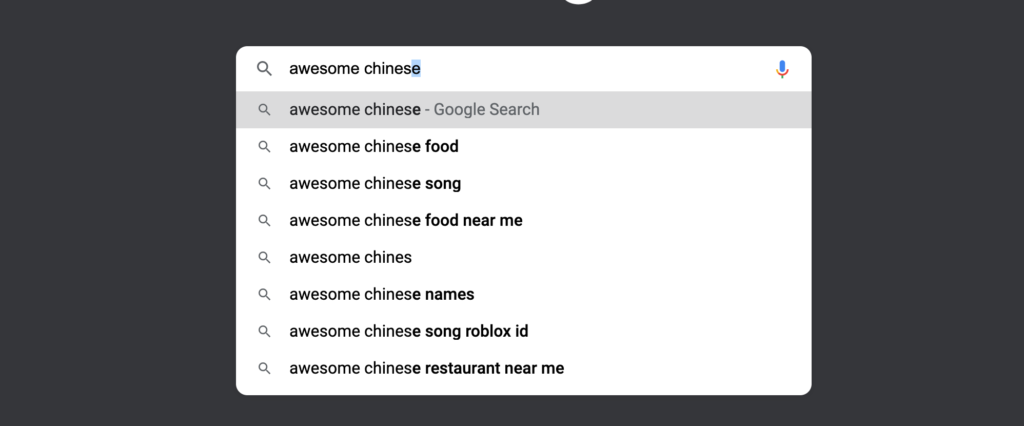
There's no doubt that search engines are a major force in our information economy, helping searchers perform hundreds of millions (or even billions) of searches per day. For most of us, the capability of 21st-century search engines — Google, Bing, Yahoo and others — can be uncannily accurate.
However, search engines are media companies. Like other media companies, search engines make editorial choices designed to satisfy their audience. These choices systematically favor certain types of content over others, producing a phenomenon called "search engine bias." The reality of search-engine bias is that it can alter our perception of what online information is available.
What is Search Engine Bias?
You know when you jump on Google to find a place to get awesome Chinese food and you start typing, “Awesome Chinese F—” and before you even finish your thought Google has 3-4 recommendations on what it thinks you are searching for? After you type a query into Google, you might imagine a digital algorithm sifting through results and churning out the best answers, ranked by relevance and quality. And you wouldn’t be wrong - not exactly.
Search engines are designed to appeal to what they perceive or predict as your values. Say for example, you conduct a search for information about the recent election. Depending on your location and if your previous queries have suggested an attitude, pro or con, left or right, search results may be biased to give you more of the same rather than to find the most astute, non-partisan conclusions.
Search results aren't all about geography or personal search history. Search Engine optimization or SEO, which can be legitimate and useful also elevates search rankings. This might make them more prominent, even if their information is incorrect or manipulative.
Search-engine bias can alter an individual user’s perception of what online information is available, and where that information can be found. Stanford University breaks search engine bias into 3 concerns:
"While some users may assume search engines are “neutral” or value-free, critics argue that search-engine technology, as well as computer technology in general, are value-laden and thus biased because of the kinds of features typically included in their design.”

The internet is a gargantuan warehouse of disorganized information. To navigate that maze user's need personalized help to sift through all of that information and find something relevant. Previously the only technology that could solve this problem at Internet scale was the search engine.
Kudzu narrative intelligence and conversation trends come with zero bias. Is there an organization, competitor, industry, or topic you want to track and research? As you can see, results from most search engines are often influenced by your location, previous searches, or paid search/SEO. Using Kudzu gives you unbiased intelligence.
The Kudzu platform utilizes large-scale consumption of publicly-available information (PAI) and sophisticated data analysis algorithms to extract narrative intelligence and conversation trends from traditional news organizations, social media outlets, video publishing platforms, and other digital sources, then atomizes those sources into easy-to-understand and shareable narrative themes as well as a providing summary of each article. So results we deliver are unbiased and only return the Narrative Intelligence and Conversation Trends that you want to see.
With Kudzu, there’s nothing to download or install. It can be set up in minutes. Contact us to get a demo and see what it can do for your organization.